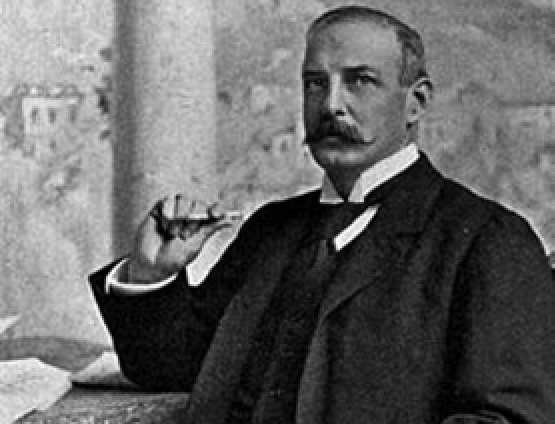Voyager upon life’s sea:—
To yourself be true,
And whate’er your lot may be,
Paddle your own canoe.
Dr. Edward P. Philpots


Voyager upon life’s sea:—
To yourself be true,
And whate’er your lot may be,
Paddle your own canoe.

“Women should be believed.”
That’s what Joe Biden said when Justice Brett Kavanaugh faced allegations of sexual assault during his 2018 Supreme Court confirmation process. While former Vice President and presumptive Democratic Party presidential nominee Biden is still for “taking the woman’s claims seriously,” now that he’s been accused, he wants us to “vet it, look into it.”*
Biden wasn’t alone then — “believe all women” became something of a rallying cry — and now his new procedural caution also echoes across the land.
“Allegation against Biden prompts reexamination of ‘Believe women’” The Washington Post headlined its report. “The inconvenient truth is that this story is impacting us differently,” the creator of the MeToo expression, Tarana Burke, told The Post, “because it hits at the heart of one of the most important elections of our lifetime.”
“Compared with the good Mr. Biden can do,” Linda Hirshman writes in The New York Times, “the cost of dismissing Tara Reade — and, worse, weakening the voices of future survivors — is worth it.”
“I don’t want an investigation. I want a coronation of Joe Biden,” Martin Tolchin explained in a letter to the Times, where he once worked as a reporter before becoming editor-in-chief of The Hill. “I don’t want justice, whatever that may be. I want a win, the removal of Donald Trump from office, and Mr. Biden is our best chance.”
Thus principle loses to expedience.
As important as fighting sexual predators is, the old principle of trusting accusers only by sex is no better than the new principle of trusting the accused by party.
This is Common Sense. I’m Paul Jacob.
* As for vetting? “We found no pattern of sexual misconduct by Biden, beyond hugs, kisses and touching that women previously said made them feel uncomfortable,” The New York Times tweeted, quoting from their story. Citing “imprecise language,” the tweet has been removed and that last phrase scrubbed from the online story without explanation.
—
See all recent commentary
(simplified and organized)

There is a scale in the meaning of the word socialist. In France it means about the same thing as a communist, when one uses plain language. When one uses the language of Monsieur Drumont, it means a Jew. In England a socialist is equal to a French conservative republican. In America it means a thief. In Germany it means an ingenious individual of restricted financial resources, who generally fails to blow up some important personage with wet dynamite. In Italy a socialist is an anarchist pure and simple, who wishes to destroy everything existing for the sake of dividing a wealth which does not exist at all. It also means a young man who orders a glass of water and a toothpick at a cafe, and is able to talk politics for a considerable time on this slender nourishment.
Francis Marion Crawford, Marzio’s Crucifix (1887).

On May 7, 1992, the State of Michigan ratified a 203-year-old proposed amendment to the United States Constitution, thereby fulfilling the terms of amending the document, adding it as 27th Amendment. The amendment had been written by James Madison. He had presented it as part of the original twelve amendments that became the ten making up the Bill of Rights. It bars the U.S. Congress from giving itself a pay raise until after the next election, so that voters have a chance to decide whether those voting for the raise would remain in Congress to receive it.

Just get rid of it.
The “it” is AB‑5, the absurd new law attacking California freelancers.
And those articulating the good riddance are the “151 Ph.D. Economists and Political Scientists in California” who have signed an open letter to California Governor Gavin Newsom and the state legislature.
The lawmakers who last year foisted the measure on Californians pretended that they were doing gig workers a big favor by making it impossible, in many cases, for companies to hire them for regular short-term jobs.
After the legislation passed, many independent contractors quickly lost work — lots of work. For example, Rev, which produces transcripts and captions, said goodbye to all of its freelancers based in California. Many other companies — reluctant to be prosecuted for the crime of engaging in voluntary economic relationships between consenting adults — also ended relationships with freelancers.
Apparently, the anti-gig lawmakers did not realize that losing one’s means of paying for food and rent is not that helpful.
Tornadoes, hurricanes, and pandemics have a way of highlighting the importance of the economic and other institutions that make human survival and civilization possible.
AB‑5 is like a natural disaster in its effects … but not natural.
“By prohibiting the use of independent contractor drivers, health care professionals, and workers in other critical areas,” the open letter explains, “AB‑5 is doing substantial, and avoidable, harm to the very people who now have the fewest resources and the worst alternatives available to them.”
The solution is “suspend AB‑5.”
It was always the solution, the obvious solution.
But now it is even more obvious.
This is Common Sense. I’m Paul Jacob.

—
See all recent commentary
(simplified and organized)

On May 6, 1862, American author, philosopher and abolitionist Henry David Thoreau died, after many years of tuberculosis.
Aware he was dying, Thoreau’s last words were “Now comes good sailing,” followed by two lone words, “moose” and “Indian.” Bronson Alcott planned the service and read selections from Thoreau’s works, and Ralph Waldo Emerson wrote the eulogy spoken at his funeral.
His remains, as well as those of members of his immediate family, were eventually moved to Sleepy Hollow Cemetery in Concord, Massachusetts.
His most famous works are An Essay on Civil Disobedience (1849) and Walden (1854).